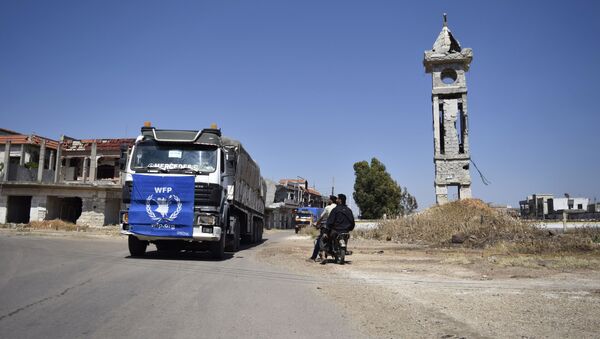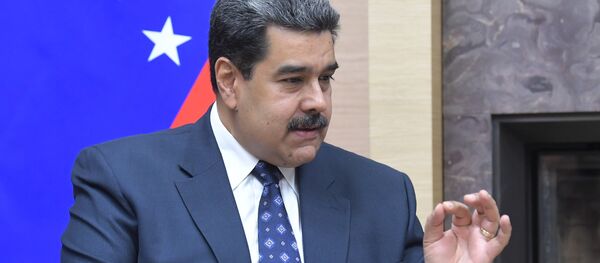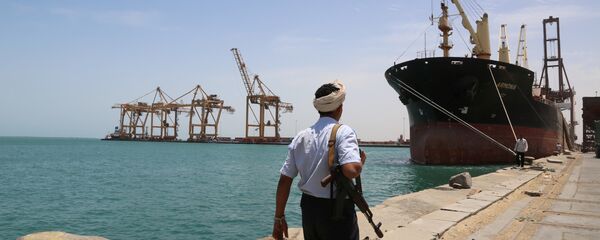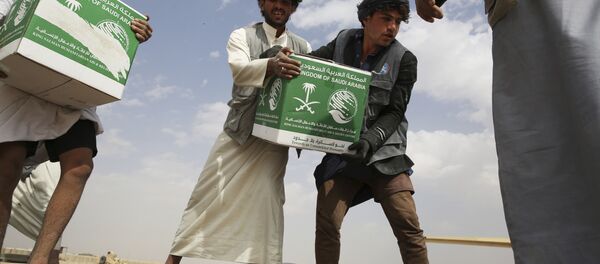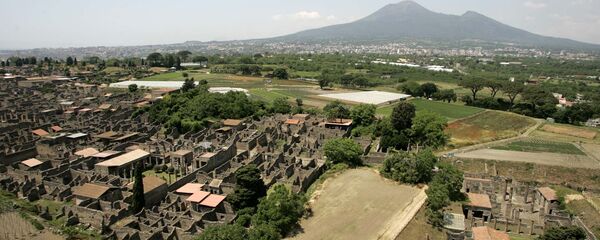Sputnik: The Democratic People’s Republic of Korea continues to face a wide range of food and nutrition challenges. A recent UN assessment says that 10 million people in North Korea face imminent food shortages. What is the WFP doing in this country?
An assessment published in May shows a really concerning the situation, with more than 10 million people facing food shortages after the worst harvest in 10 years. People are cutting meals, eating less, and eating a less varied diet, which means nutrition is at risk, especially for vulnerable women and children.
READ MORE: ‘A Social Right’: US Targeting of Venezuela’s CLAP Food Program Will Backfire
Our top priority is to meet immediate food needs and to safeguard the nutrition gains made in recent years. We also need to build resilience to natural hazards in the longer term. We are now looking at the options we have that would make it possible to meet the immediate needs, and the findings of our recent assessment will undoubtedly assist in planning the way forward.
Sputnik: How would you describe the cooperation between different humanitarian organisations on the ground?
David Beasley: Coordination between humanitarian agencies in DPRK is solid. WFP is a key member of the UN Humanitarian Country team in Pyongyang, which meets regularly to coordinate humanitarian interventions in the country. WFP co-chairs the Food Security and Agriculture Working Group with FAO, and also co-chairs the Nutrition Sector Working Group with UNICEF.
David Beasley: This year, we have had continuous engagement with the government and our ability to monitor has improved, in part because of this. For example, this year, we were able to get previously inaccessible data because we strengthened our collaboration with the Central Bureau of Statistics.
All activities implemented by WFP in DPRK remain strictly within the parameters of UN Security Council resolutions, which have repeatedly stated that sanctions are not intended to affect humanitarian operations.
Sputnik: Syria, with its long-lasting conflict, is yet another trouble spot in the world’s food security sector. But there is encouraging news about fighting ceasing on the ground and a return to normal life. Do you think the crisis in Syria is still far from over?
Those returning to their homes after fleeing from the conflict face tremendous challenges to restart their lives. Now, poverty is prevalent among 75% of the population of Syrians inside Syria. Poor families spend 80% of their income on food. This is why food assistance is vital here. Despite the challenges in Syria, WFP assists more than three million people every month and we are also helping some 400,000 people with livelihoods projects that enable them to produce their own food.
READ MORE: UK Food Bank Network Distributed Record Number of Emergency Parcels in 2018
Sputnik: What assistance does the WFP provide to Syrian refugees in neighbouring countries and to people who are trying to start a new life after returning home?
David Beasley: Regionally, WFP has provided assistance to around 3,400,000 refugees as of March 2019 through different activities in Egypt, Iraq, Jordan, Lebanon and Turkey, providing general food assistance through food rations, livelihoods projects that help families to generate income, school meals to incentivise parents to send their children to school and finally nutritional support to prevent and treat malnutrition in children. All these efforts, combined, help us ensure that vulnerable communities affected by conflict are looked after and have hope for a better future.
Sputnik: Do you cooperate with Russia? How do you assess its role in the improvement of the humanitarian situation in Syria?
David Beasley: Absolutely we work with Russia. From 2012 to 2019, the Russian Federation has provided US$26,500,000 to WFP for our food assistance operations in Syria. Russia is an important partner for the World Food Programme and we very much value the dialogue we have with Russia and its leaders.
David Beasley: WFP will carry out a food security assessment to understand the ability of Venezuelans to meet their food needs.
Sputnik: Are you ready to provide aid to the Venezuelan people if the ban is lifted?
David Beasley: Yes. WFP has expanded ongoing preparedness activities and is supporting regional coordination efforts with partners.
Sputnik: What are the threats and consequences of the civil confrontation in the country?
David Beasley: We are a humanitarian organisation. It is not our role to take sides in political controversies, and the work WFP does is and will continue to be independent of political or military objectives.
READ MORE: Acute Food Insecurity Affecting Over 100 Million People Every Year
Sputnik: Do you think that we’ll soon be speaking of famine and other tragic issues in Venezuela?
David Beasley: As I mentioned, WFP first needs to carry out a food security assessment, and that will inform our conclusions about the situation in Venezuela.
Sputnik: As the WFP continues to provide food assistance in different regions, what aims is it pursuing? What, in your opinion, are the future challenges that need to be considered?
The views and opinions expressed by the speaker do not necessarily reflect those of Sputnik.
